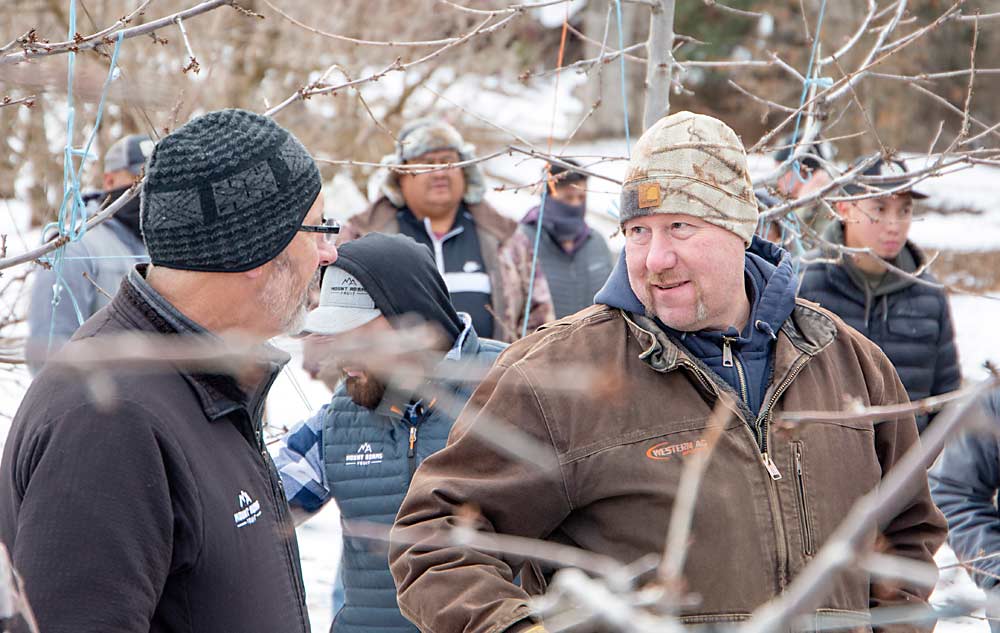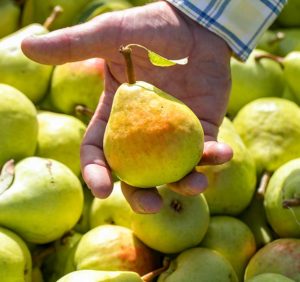
Facing rising costs and pressure from tourism in Oregon’s scenic Hood River Valley, tree fruit grower Dwight Moe sold his farm while still in his 50s.
But it’s a retirement plan he’s proud of.
He found two local buyers who plan to continue farming the property. And he maintained his connection to the ag community: Moe still works side jobs in agriculture, volunteers at the local fire department and occasionally attends orchard pruning tours. On the other hand, he and his wife, Jackie, visit Mexico pretty much whenever they want to.
“I’ve been smart enough through my life that I should not have to work unless Social Security completely fails,” he said.
Financial planning consultants said Moe, now 55, checked the right boxes when executing his exit strategy.
For one thing, he planned ahead. He was not even 50 when, in 2016, he and Jackie started making plans to sell the property. They have no children, while his sister owned only a small share in the business.
He wasn’t burned out, but he didn’t want to farm into his old age, either. After watching older farmers do that, he knew it wasn’t for him.
After turning down suitors who wanted to divide up the property more than he liked, he found two buyers in 2019 who shared some of his values. Moe leases out a third portion.
Moe wanted the land, which his grandparents homesteaded in 1905, to remain in farming, considering it a legacy even for other families to carry. In 2005, he listed the business with the Oregon Century Farm and Ranch Program, a statewide recognition program for families that have worked the same property for 100 years.
“I think being able to choose a buyer versus … a buyer choosing me,” he said. “We had control of that because, I guess I could say no.”
Erick von Lubken, who grew up with Moe, bought about 50 acres, expanding his acreage to roughly 215. The purchase helps make room for his two sons, who want to become fifth-generation growers.
His family had attended a conference that featured an “eye opener” presentation on succession planning, von Lubken said. One lesson was that the upcoming generation had to bring something to the table, either technology, specialized skills or an increase in acreage. His great-grandfather started with about 10 acres, his grandfather had 22 acres and the farm continued to grow with every generation.
Located in Odell, in the middle of the Hood River Valley, the new property filled a geographical need for von Lubken, who already had orchards in the lower altitudes near the Columbia River and higher near Parkdale, allowing him to stagger the labor needs to manage harvest and other seasonal tasks.
The property also lies outside the growth management boundary for Hood River, providing a buffer against the pressures of urbanization and outdoor-recreation tourism.
In fact, Oregon’s strong farmland preservation laws would have made subdividing hard anyway. In 1973, the state mandated that cities and counties, in their growth plans, set aside farmland for protection, and it offered a tax incentive to keep properties as working farms.
Still, the scenic Hood River area is under pressure from the rise of short-term rentals, restaurants and second homes with ornamental orchards, said Nico Salter, executive director of Thrive Hood River, a rural preservation nonprofit.
“Clearly, when retiring farmers voluntarily arrange for their land to stay in farming in the Hood River Valley, they are acting in the interest of future generations,” Salter said.
Moe’s grandparents first settled in Hood River in the late 1800s, publishing a newspaper named The Glacier. They purchased a homestead farm in Odell in 1905 and planted some fruit trees. Some of those original Anjou pears are still on the property. His father expanded with time. So did Moe.
Following a pay-as-you-go ethos, Moe lived frugally. Jackie took over managing the books while he focused on the orchard, never hiring a manager or foreman. He maintained a year-round crew of eight workers, bumping up to 35 during the peak of harvest. In fact, the most emotional part of the sale was saying goodbye to employees that had been with his family for 30 years.
Today, Moe stays as busy as he wants to be. He repairs wind machines for a nearby mechanic and offers custom discing services to neighboring growers. Sometimes they ask him for advice. He’s been a volunteer firefighter since age 16 and has been the assistant chief for roughly 10 years. He even helps groom snowmobile trails in the winter.
His story offers some good selling and retiring lessons, according to financial advisors.
Selling any business can take years — and sometimes several failed attempts —before a deal reaches the finish line, said Rob Blethen, a certified financial planner and executive vice president with D.S. Baker Advisors in Yakima, Washington. Add to that the reluctance business owners have about discussing their own mortality, and many growers put off the effort too long and ultimately resort to a fire sale.
“To be ahead of it was really smart,” Blethen said.
Moe’s concern for the fate of his property is common with farmers, Blethen said. Some even accept a lower price from a buyer with similar values if it means the land will stay a farm and employees will continue to have jobs.
Such nonfinancial goals are important for a farm owner to identify, said Steve Kluemper, president of AgriStrategies, an agricultural consulting firm in East Lansing, Michigan. He sees the future land use question come up with aging farmers near Traverse City, a lakeside tourism destination amid multigeneration family farms.
Those long-term visions help business owners determine the value of their businesses when they eventually want out, Kluemper said.
“Everybody has got different objectives that they want to meet,” he said.
—by Ross Courtney







Leave A Comment